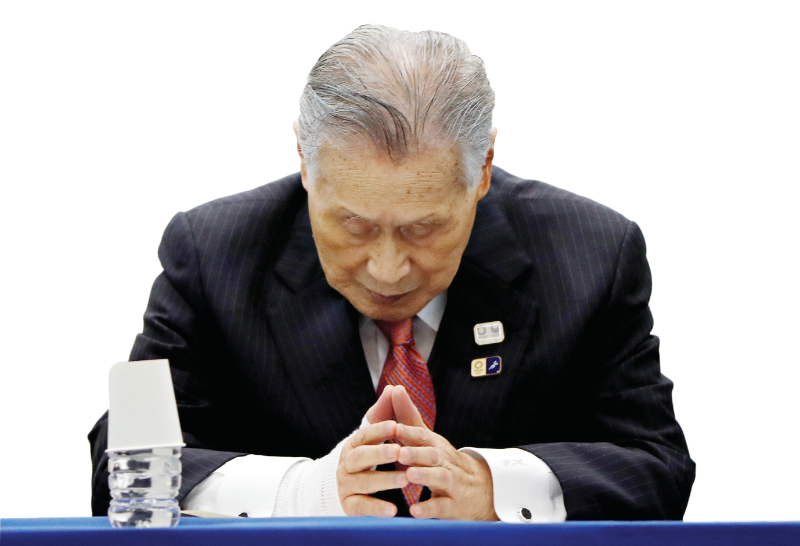https://arab.news/vb6aa
- Postponement is first in Games’ 124-year history
- Games to be rescheduled beyond 2020 but not later than summer 2021
DUBAI: On Tuesday, what even the most optimistic of sport fans must have suspected all along, was confirmed: The Tokyo Olympics will now be postponed due to the coronavirus disease (COVID-19) crisis.
After a conference call on Tuesday morning that saw President of the International Olympic Committee (IOC) Thomas Bach, Japanese Prime Minister Shinzo Abe and other stakeholders discuss the latest developments, it was announced that Tokyo 2020 will be pushed back to a later date.
The official IOC statement said: “In the present circumstances and based on the information provided by the WHO today, the IOC President and the Prime Minister of Japan have concluded that the Games of the XXXII Olympiad in Tokyo must be rescheduled to a date beyond 2020 but not later than summer 2021, to safeguard the health of the athletes, everybody involved in the Olympic Games and the international community.”
The announcement brings to an end a prolonged saga of indecision. Late on Monday night, a comment by IOC member Dick Pound in USA Today had all but confirmed a delay was a mere formality.
“The parameters going forward have not been determined but the games are not going to start on 24 July, that much I know,” he said.

Yoshiro Mori, president of the Tokyo 2020 Olympic Games Organizing Committee, at a news conference after a telephone meeting with IOC President Thomas Bach Tuesday. (Reuters)
A subsequent statement by the British Olympic Association calling for postponement made the UK the latest country unwilling to risk the health of its athletes.
The cancellation was the unavoidable conclusion of a series of events and announcements made over the previous 48 hours.
First came the announcement on Sunday night by the IOC that a decision on whether the Tokyo Olympics would go ahead in July would be taken in four weeks time.
As the world came to a stand- still due to the spread of COVID- 19, even this concession seemed out of touch with the reality on the ground.
Things were changing by the hour. On Monday morning, Abe, speaking to parliament, acknowledged that the country must seriously consider postponing Tokyo 2020, potentially until next year, though there was no suggestion that it would be canceled.
“The IOC’s decision is along the lines of what I said before, of holding the event in its complete form,” he said.
“If that becomes difficult, and thinking first about the health of the athletes, we may have no option but to consider postponing the games.”
Even that statement faced criticism for what many considered to be a failure to take into account the rapidly changing health crisis.
Around the world, major sporting leagues, competitions and activities had long been suspended, including football’s Euro 2020, which was pushed back to 2021. And yet the organizers of the Tokyo Olympics had stubbornly held their ground.
In recent weeks, there had been a swell of opposition to the games taking place as scheduled, with many individual country federations fearing for the safety of their athletes, and that’s before getting to the issue of ensuring the health of staff, volunteers and fans still considering attending the events.
In the Middle East, the developments cast a shadow over a prevailing sense of of wary optimism. On March 18, a delegation from the UAE National Olympic Committee (UAE NOC) met with Akima Umezawa, consul-general of Japan in Dubai, to discuss preparations and logistics for the games.
The delegation received a replica of Tokyo 2020’s mascot “Miraitowa.”
However, events elsewhere over a dramatic 48 hours rapidly overtook this sense of normalcy. On March 20, the Saudi Arabian Olympic Committee (SAOC) had thrown its support behind the IOC in a tweet that confirmed talks with the World Health Organization regarding the crisis were ongoing.
“Following a conference call this morning, led by the President Dr Thomas Bach, and the Asian Olympic Committee to discuss the impact of COVID-19 pandemic on the preparation for Tokyo 2020, Saudi Arabian Olympic Committee and its president Prince Abdul Aziz Turki Al-Faisal express their full support to the efforts of the IOC, in collaboration WHO, to overcome this very critical time,” the statement said.
It added: “SAOC wishes that the Tokyo 2020 Games will be the moment that the world celebrates the successful transition to prosperity after defeating this global pandemic.” That celebratory moment will now have to wait.

